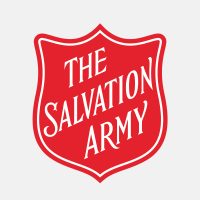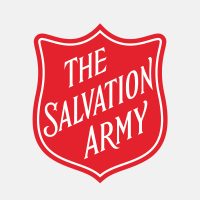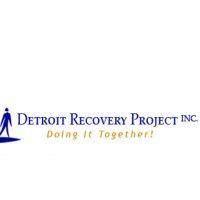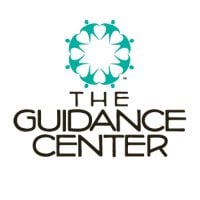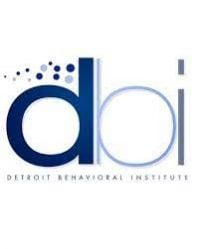Self - Help Addiction Rehab - Maybury Grand
Drug Rehab Center in Detroit, Michigan
Self-Help Addiction Rehab - Maybury Grand is a rehabilitation center in Detroit, Michigan that offers individualized treatment plans for addiction to drugs and alcohol, with evidence-based treatments and specialty services such as experiential therapies and vocational and educational services.
About Self - Help Addiction Rehab - Maybury Grand in Michigan
Self - Help Addiction Rehab - Maybury Grand is a reputable addiction treatment facility located in Detroit, Michigan. Established in 1969, this center has been providing comprehensive care and support for individuals struggling with alcoholism, dual diagnosis, opioid addiction, and drug addiction. The facility offers a range of treatment programs to meet the varying needs of its patients, including detox, drug rehab, dual-diagnosis treatment, inpatient care, intensive outpatient programs, outpatient services, residential treatment, and sober-living/halfway house options. As a testament to their commitment to quality care, Self - Help Addiction Rehab - Maybury Grand is accredited by CARF, an independent nonprofit organization that evaluates programs and services to ensure they meet internationally recognized standards of excellence. In addition, the center accepts private health insurance, making it accessible to individuals seeking professional assistance in their recovery journey.
Self - Help Addiction Rehab - Maybury Grand is well-equipped to address the diverse challenges associated with addiction and substance abuse. With their comprehensive range of treatments, individuals struggling with alcoholism, drug addiction, and opioid dependency can find the help they need within one facility. The center provides detoxification services to support patients through the initial stages of withdrawal, ensuring a safe and comfortable process. Following detox, the facility offers various levels of care, including inpatient and residential treatment, where patients can receive round-the-clock support and therapy in a structured environment. For those requiring less intensive care, intensive outpatient programs and outpatient services are available, allowing individuals to receive help while maintaining their daily routines. Furthermore, the center focuses on dual-diagnosis treatment, addressing both addiction and underlying mental health conditions simultaneously. This integrated approach helps patients achieve lasting recovery by addressing the root causes of their addiction. Overall, Self - Help Addiction Rehab - Maybury Grand is dedicated to providing comprehensive and personalized care to individuals seeking to overcome addiction and rebuild their lives.
Genders
Ages
Modality
Additional
Accreditations

CARF
The Commission on Accreditation of Rehabilitation Facilities (CARF) is a non-profit organization that specifically accredits rehab organizations. Founded in 1966, CARF's, mission is to help service providers like rehab facilities maintain high standards of care.
Conditions and Issues Treated
Opioid addiction is when someone becomes addicted to opioids. This can happen quickly due to any opioid use. Opioid withdrawal can be uncomfortable and lead the user to continue using even if they want to quit. It’s best to receive inpatient treatment for detoxification.
Even if a person doesn’t need inpatient treatment, it’s recommended to start rehabilitation or at least some kind of outpatient treatment. This is because the withdrawal symptoms from opioids can be uncomfortable and unpleasant, to the point that a person could end up using again or worse.
Detoxification should be done to break the physical addiction of opioids. This can be done with opioid replacement therapy, medication-assisted therapy, or a more traditional detoxification program. Intensive outpatient treatment is a form of addiction care that allows patients to continue living at home while undergoing treatment. This type of care is appropriate for patients who have been treated in residential treatment programs. Intensive outpatient programs include regular visits to the facility providing therapy, and patients gradually return to their routine life. IOP benefits most when patients have a supportive family member or friend to help them recover.
The first step to getting into an intensive outpatient program is to attend a detoxification facility. Detoxification facilities are designed to remove substances from the body safely. The patient will attend sessions designed to help them understand their addiction and its impact on their lives. While in an intensive outpatient program, therapy sessions are scheduled three to five times per week, with the patient attending no more than two sessions in one day.
Dual Diagnosis therapy is considered more successful than traditional rehab methods because it treats the addiction and the underlying mental health disorder simultaneously. This comprehensive approach gives Detroit, MI patients the best chance for long-term recovery. If the patient does not receive treatment for both conditions, they are more likely to relapse.
Levels of Care Offered
This center offers a variety of custom treatment tailored to individual recovery. Currently available are Detox, Drug Rehab, Dual-Diagnosis, Inpatient, Intensive Outpatient, Outpatient, Residential, Sober-Living / Half-Way, with additional therapies available as listed below.
Detox is the process by which toxins are removed from the body. In substance abuse, detox refers to the process of getting rid of the drugs that are already there in the system once the patient stops its further intake. Detox is the initial step in the recovery process. The physiological dependence on the drug over a period can lead to withdrawal symptoms.
Depending on the severity of the symptoms, the detox process is managed either medically or clinically. While Medically assisted detox relies on the usage of specific medicines, clinal or social detox relies on providing emotional and psychological support to the patient.
Inpatient facilities offer a complete rehab program where the patient stays for an extended period. This allows the staff to monitor the patient on a round-the-clock basis and provide medical assistance if needed.
A significant benefit of inpatient rehab is that it allows for a safe environment for treatment. The patient doesn’t have access to drugs or alcohol, and they’re surrounded by people that want them to succeed and change their lives. Treatment starts with detox and behavioral therapy, followed by group therapy and family involvement.
An intensive outpatient treatment program, or IOP, is set up for those struggling with an addiction to begin the recovery process. However, the patient will not live at the facility during treatment.
IOP involves patients coming in and out of a medical office building regularly to receive therapy and other services while continuing their life outside of these visits.
IOP is a step up from drug detoxification or alcohol detox. However, it’s still considered a phase of recovery rather than the ultimate goal. There are many rehabs and treatment facilities available to patients in need of IOP.
Outpatient treatment consists of counseling and therapy sessions. The outpatient treatment process begins with the addict’s initial detox period, lasting about ten days. Outpatient treatment is used for those who are at moderate risk for “slipping back” into the addiction. It is also used for those who are not currently experiencing any side effects from withdrawal, can handle social pressure, have a stable living environment, and have a good support system.
Sober living homes are transitional houses for recovering addicts who need more structure than they would receive in an aftercare program. Specific rules and regulations are enforced in these homes, which are beneficial for people who need a greater degree of structure than other types of treatment.
Sober living home options include:
- Live-in managers – might be beneficial to people who do not have a support system in place at home, or who experience high levels of stress between work and home life.
- House managers – House managers are beneficial for people who do not have a strong social network to rely on, or who are concerned about relapse in their daily lives.
- House parents – House parents are beneficial to people who reside in areas without a strong aftercare program for support.
Residential treatment programs are those that offer housing and meals in addition to substance abuse treatment. Rehab facilities that offer residential treatment allow patients to focus solely on recovery, in an environment totally separate from their lives. Some rehab centers specialize in short-term residential treatment (a few days to a week or two), while others solely provide treatment on a long-term basis (several weeks to months). Some offer both, and tailor treatment to the patient’s individual requirements.
Therapies & Programs
Individual Therapy is a crucial component of addiction recovery. Therapists work with patients to identify the root of their addiction and figure out how to better handle the issues that led to them using drugs. Individual Therapy is one on one sessions where people meet with their therapist. Individual therapy provides a safe space for people to open up and discuss personal and sensitive topics which they may not feel comfortable discussing in a group setting.
In this type of therapy, therapists can develop specific solutions for each patient, which helps speed up their recovery process. In addiction recovery, therapy is a crucial part. It allows patients to go deep into their core issues and discover how those problems can be better handled now. Therapy can be performed in individual sessions as well as group settings. In individual therapy for addiction, the patient meets with the therapist one-on-one to focus on the underlying issues of addiction and come up with solutions to prevent future abuse.
Group Therapy is employed by drug treatment centers like Self - Help Addiction Rehab - Maybury Grand to provide the recovering addict with a platform to talk about their feelings and experiences. It also provides for an opportunity to learn from other addicts who have successfully overcome their addiction. It is recommended that all group members be recovering addicts for this type of therapy to work.
Payment Options Accepted
For specific insurance or payment methods please contact us.
Is your insurance accepted?
Ask an expert, call (888) 674-0062
Self Help Addiction Rehab Associated Centers
Discover treatment facilities under the same provider.
- Self Help Addiction Rehab - West Grand Boulevard in Detroit, MI
- Self Help Addiction Rehab in Detroit, MI
- Self - Help Addiction Rehab - Warren in Warren, MI
Learn More About Self Help Addiction Rehab Centers
Additional Details
Specifics, location, and helpful extra information.
Detroit, Michigan 48208 Phone Number(313) 894-1289 Meta DetailsUpdated November 25, 2023
Staff Verified
Self - Help Addiction Rehab - Maybury Grand Patient Reviews
There are no reviews yet. Be the first one to write one.
Detroit, Michigan Addiction Information
Michigan has the second-highest rate of drug and alcohol abuse in the nation. Heroin is linked to more than 50% of the state's hepatitis C cases. Marijuana is the drug most often associated with crimes in Michigan, followed by methamphetamines. Opioids alone are responsible for almost 20% of all drug overdose deaths in Michigan.
Over 1,000 drug-related overdose deaths occurred in Detroit, Michigan, in 2017 alone. Opioids (42%) and benzodiazepines (22%) are the most common drugs involved in overdose deaths. Drug overdoses killed more people in 2016 than homicides. In Detroit, Michigan, there are a variety of drug rehab centers to choose from. The most important thing is to find a facility that will best meet the needs of the individual.
Treatment in Nearby Cities
- Owosso, MI (70.7 mi.)
- L'anse, MI (402.8 mi.)
- Tecumseh, MI (49.6 mi.)
- Farmington Hills, MI (17.0 mi.)
- Kincheloe, MI (279.0 mi.)
Centers near Self - Help Addiction Rehab - Maybury Grand
The facility name, logo and brand are the property and registered trademarks of Self - Help Addiction Rehab - Maybury Grand, and are being used for identification and informational purposes only. Use of these names, logos and brands shall not imply endorsement. RehabNow.org is not affiliated with or sponsored by Self - Help Addiction Rehab - Maybury Grand.






